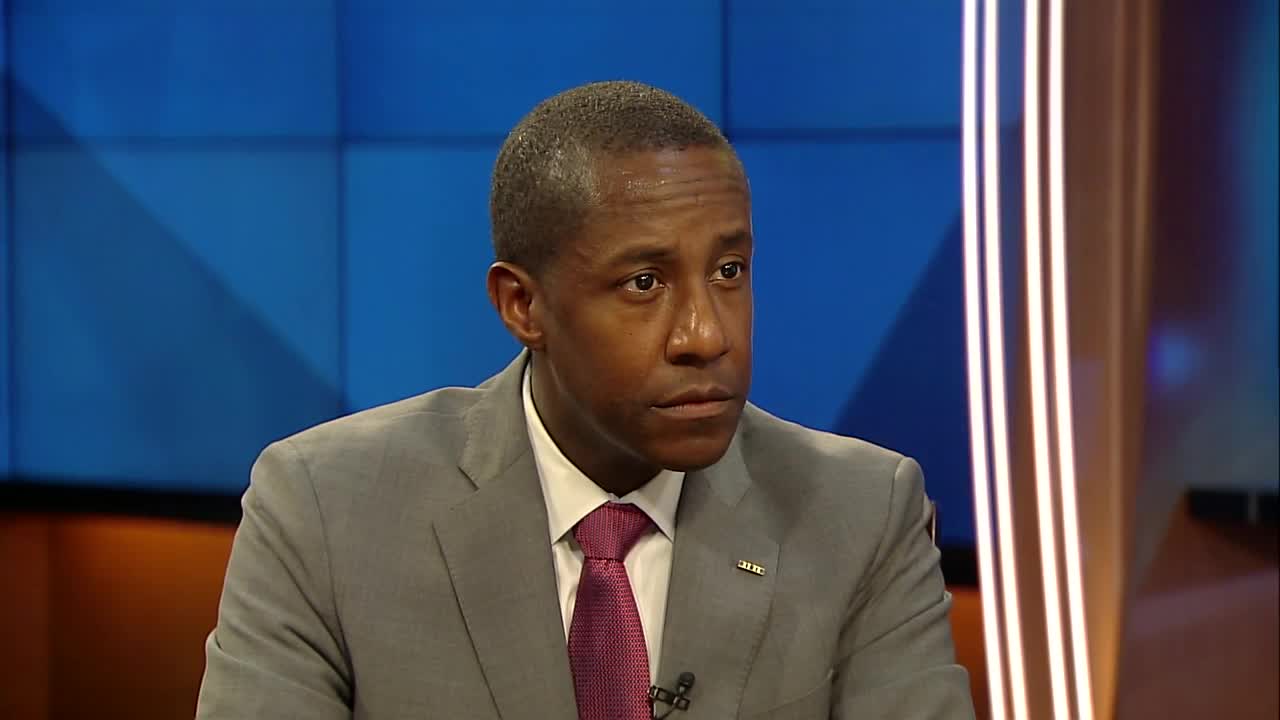
Today, Democrat Setti Warren announced his candidacy for governor of Massachusetts, with hopes of undoing the years of bipartisan progress achieved under Governor Charlie Baker. But as Warren’s record as mayor of Newton shows, he offers nothing but failed tax and spend policies that would hurt Massachusetts families. At an event earlier this month, Warren even bragged about how he successfully raised taxes on his town during an election year:
SETTI WARREN: “I did something a lot of politicians don’t do, I raised people’s taxes in a reelection year…”
What Warren doesn’t mention is that during the same year, he convinced Newton’s Board of Alderman to give him a 28% salary hike while other city employees received only modest pay raises of 1.5 to 4%. To make matters worse, Warren has gone on record criticizing Beacon Hill lawmakers voting for pay increases for themselves, even urging them not to override Governor Baker’s veto of a bill to do so in January. Apparently Warren does not feel he should be held to the same standard as those he criticizes.
Setti Warren may claim he has the answers, but with his hypocritical record of giving himself pay raises while hiking taxes, Massachusetts voters know they can’t trust him. Governor Baker’s policies, meanwhile, have spurred massive job growth and dramatically expanded opportunity in the Commonwealth.
BACKGROUND:
Setti Warren’s Salary Hike
In April 2012, Warren proposed a 28% salary increase for himself, raising his salary from $97,876 to $125,001. “Newton Mayor Setti Warren has proposed raising his own salary by $27,125 in the budget plan he presented to aldermen this week. Warren, a former candidate for US Senate, is recommending that his salary climb next fiscal year to $125,001, a 28 percent increase from his current annual pay of $97,876.‘It’s not about me, it’s about the office of mayor,’’ said Warren, who is halfway through his first four-year term. (Deirdre Fernandes, “Newton mayor seeks $27,125 pay raise,” The Boston Globe, April 19, 2012)
The same budget proposal included pay raises for public employees ranging from 1.5 to 4%. “Most would see their pay rise between 1.5 percent and 4 percent… But the mayor’s pay increase would be the heftiest… ‘Last year, Warren was the city’s 214th highest-paid employee, trailing the school superintendent, police and fire chiefs, school principals, and numerous police officers. Superintendent David Fleishman led the city in pay, making about $254,574 last year.” (Deirdre Fernandes, “Newton mayor seeks $27,125 pay raise,” The Boston Globe, April 19, 2012)
Newton’s Board of Aldermen approved Warren’s budget proposal that included the salary hike. “The final budget number didn’t change from the $312.9 million Warren unveiled April 17, however, the aldermen passed nine budget resolutions including one that asked Warren to add an additional full-time city planner to the budget to help with the backlog in the Planning Department. (Chloe Gatsis, “Alderman pass $312.9M budget, layoffs avoided, sewer and road repairs funded,” Wicked Local, May 22, 2012)
Setti Warren’s Criticism For Beacon Hill Pay Raises
Citing a “budget crisis situation” and lack of public input, Warren criticized a bill supported by state lawmakers imposing pay raises for themselves and state officials. The Boston Globe, February 3, 2017: Warren this week called for Beacon Hill Democrats to put the brakes on their rush to give themselves whopping raises with little public debate — particularly in light of the state’s fiscal problems. He said he supports providing better salaries but wants transparency… ‘I don’t agree with the ways it is being done,’ he said. ‘There’s a lack of public engagement. It is also bad timing. You have a budget crisis situation.’” (Frank Phillips, The Boston Globe, February 3, 2017)
After Governor Charlie Baker vetoed the bill, Warren called on Beacon Hill Democrats to “rethink” an override vote while recognizing. Setti Warren tweet, January 26, 2017: “I urge my fellow @massdems to rethink this one before the override vote. If 5 senators or 10 Reps reconsider, no pay raise. #mapoli” (Tweet: Setti Warren,Twitter, January 26, 2017)
The Springfield Republican, January 27, 2017: “‘In principle I agree that legislators and other elected officials should be paid a reasonable wage, but the process of rushing this legislation through has been unseemly,’ Warren said. ‘If you think you deserve a raise, make the case to the people you represent, and then solicit their feedback.’ (Shira Schoenberg, “Gov. Charlie Baker vetoes legislative pay raises,” The Springfield Republican, January 27, 2017)
Setti Warren’s Property Tax Override
In October of 2012, Warren proposed a referendum to institute an $11.4 million property tax override, which would raise taxes on the average Newton home by $300. “Under Warren’s initial plan, the $11 million override would pay for the debt service on several elementary school building projects — including Angier, Cabot and Zervas — and a new fire station. The permanent tax increase, if passed, would also have helped the city maintain its crumbling roads, keep up with growing school student enrollment, and add a handful of police officers to the force, according to city officials…On a median home in Newton, assessed at $680,550, the initial plan would have increased taxes by about $300, according to city officials…Raising taxes is always a hard sell, Alderman Brian Yates said, but Warren has gained some credibility with voters by reducing labor costs in last year’s negotiations with unions. And the rationale for asking voters to approve one big package of items, instead of individual projects, made sense, he said… ‘It’s cleaner,’ Yates said.” (Deirde Fernandes, “State throws wrench into Newton mayor’s plan to pitch tax increase to pay for new schools, other costs,” The Boston Globe, Oct. 14, 2012)
Newton voters last approved such a property tax override 10 years before, in 2002. The Boston Globe, October 14, 2012: “Overrides beyond the normal tax increases allowed under Proposition 2½ have been controversial statewide, and Newton’s history with the measure has made city officials even more skittish. The last time Newton voters approved a property tax override, an $11.3 million measure, was in 2002.” (Deirde Fernandes, “State throws wrench into Newton mayor’s plan to pitch tax increase to pay for new schools, other costs,” The Boston Globe, Oct. 14, 2012)
Ultimately, Warren won residents’ support, and Newton voters approved three tax questions instituting $11.4 million in tax overrides. “Residents approved three tax questions totaling $11.4 million, marking a victory for the city’s politically ambitious mayor, Setti Warren, who had wooed supporters by promising to avoid the missteps of Newton North and persuading them that he had tightened the city’s expenses. (Deirdre Fernandes, “Newton voters OK overrides totaling $11.4m,” The Boston Globe, March 13, 2013)





See the latest videos from RGA
Watch our videosThe numbers say it all. New Hampshire can’t afford to become @maura_healey's Massachusetts.
NEW: Eleven economic development projects in Ohio are expected to create 1,025 new jobs statewide.
Details: https://bit.ly/3J1ZYDO
Follow RGA on Twitter
Follow RGA on Facebook